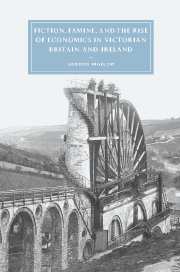1 - History as abstraction
Published online by Cambridge University Press: 22 September 2009
Summary
CONDILLAC'S PHILOSOPHY OF SIGNS
Among Adam Smith's early works are an essay “Concerning the First Formation of Languages” (1761) and a piece in the early Edinburgh Review (1755) largely concerned with Rousseau's Discourse on the Origin and Foundations of Inequality. While Warburton's Divine Legation of Moses inaugurates the origin of language debate in England, his influence is less apparent in Smith's early work than that of Etienne Bonnot, Abbé de Condillac, a key figure in eighteenth-century philosophy, though little read today. Though Condillac's major works were among the books in Smith's library, he does not refer to Condillac in any extant writings; at the very least, Smith would have known of Condillac's work from Rousseau's liberal use of it in the Discourse on Inequality. Whether Smith had access to these ideas through the work of Rousseau or through some other source, it is clear that the theory of language which Condillac described, in particular his understanding of the role of what he calls abstraction, functioned as a founding principle in all of Smith's work.
Condillac worked in the empiricist tradition of Locke, and his first book, Essay on the Origin of Human Knowledge (1746), attempted to correct the errors he saw in Locke's theory of sensations. Condillac was persuaded by Locke's strictly empirical account of human consciousness, but he argued that Locke was imprecise in demonstrating that higher mental activities could have developed from sensations alone.
- Type
- Chapter
- Information
- Publisher: Cambridge University PressPrint publication year: 2003



